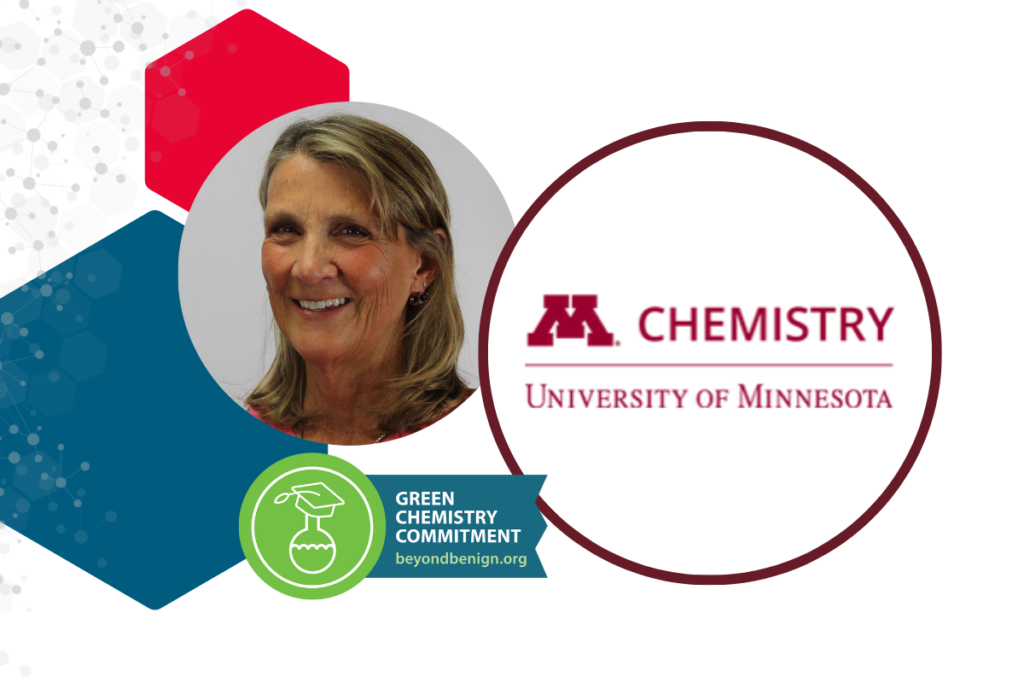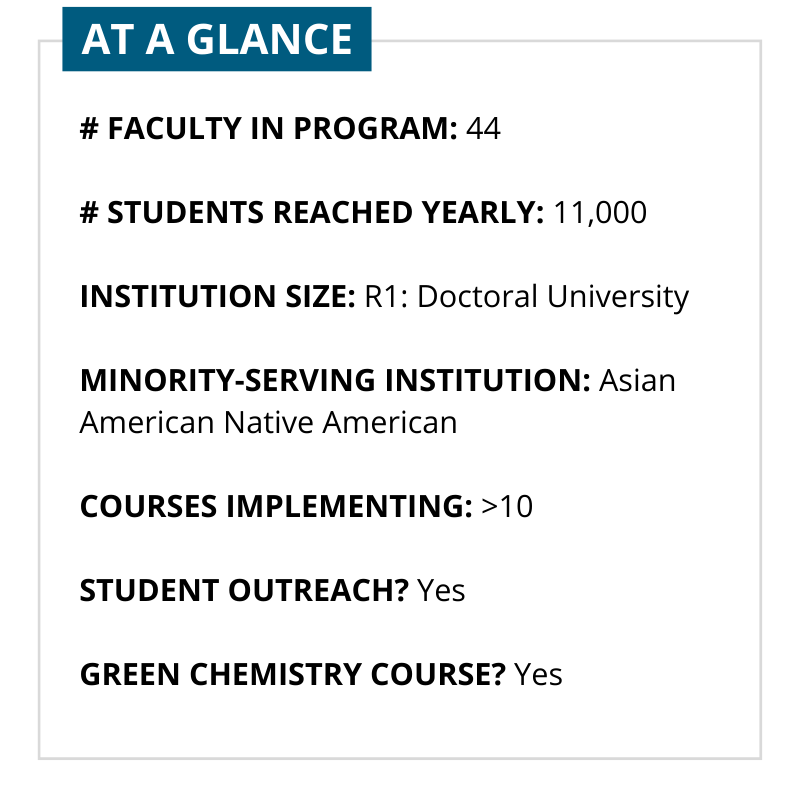An interview with Jane Wissinger

 In 2013, Beyond Benign created the Green Chemistry Commitment (GCC) program with guidance from higher education institutions as a framework to unite the global Green Chemistry community. The GCC goal is to infuse Green Chemistry into Higher Education and give scientists the required skills to design processes and products less hazardous to human health and the environment.
In 2013, Beyond Benign created the Green Chemistry Commitment (GCC) program with guidance from higher education institutions as a framework to unite the global Green Chemistry community. The GCC goal is to infuse Green Chemistry into Higher Education and give scientists the required skills to design processes and products less hazardous to human health and the environment.
Beyond Benign has partnered with companies including Dow, MilliporeSigma, and Biogen to further its mission to empower educators to transform chemistry education for a sustainable future. Support from these partners has allowed Beyond Benign tocreate resources, foster relationships, and provide essential funding to educators, all in an effort to grow and strengthen the Green Chemistry education community.
The University of Minnesota (UMN) is a Dow academic partner and founding GCC signer. Discover the university’s story in our interview with Morse-Alumni Distinguished Teaching Professor, Jane Wissinger.
How has being part of the GCC impacted your institution and you as a faculty member?
Since signing the GCC in 2013, many new and diverse initiatives evolved through the support and resources provided through this program. Green chemistry was already incorporated in the organic laboratory course, but the GCC sparked interest in developing a dedicated green chemistry upper division lecture course. This course has been taught by five different faculty instructors, each with their own influences and research connections, expanding the breadth and diversity in green chemistry and engineering concepts for our students.
Being part of the GCC encouraged the addition of toxicology into the course and fostered collaborations with departments such as the MN School of Public Health as well as state agencies such as the Minnesota Pollution Control Agency. Personally, these interactions opened opportunities of learning and examples of new curriculum content to continue improving upon my own courses as well as disseminating ideas to other instructors for their courses.
What student outcomes have you observed since instituting Green Chemistry practices and principles?
Student outcomes are evident at both the undergraduate and graduate student levels. At the undergraduate level, students who were introduced to green chemistry were increasingly interested in research opportunities where they could apply the principles. In the last three years, the ACS MN student chapter made a concerted effort to increase green chemistry programming and won a Green Chemistry Chapter award in 2022.
At the graduate student level, two major efforts have emerged. One involves our department’s Joint Safety Team (JST) that promotes reducing risk through substitution or elimination of the hazards when possible and provides resources through their website. Second, is a new committee called the Sustainable and Green Chemistry committee that is comprised of graduate students, staff, postdocs, undergraduates, and faculty all working together to build a culture of sustainability and green chemistry in the department. The graduate students, in particular, are working to improve sustainability practices in the research laboratories.
How do you envision the GCC community supporting the future green chemistry goals of your institution and training of your students?
I believe it is important that students at all levels see evidence that their academic training will be relevant to their future careers, and that their careers will have an impact on society. This applies to both academic and industrial positions. The fact that companies such as DOW are backing this initiative is of HUGE consequence and illustrative of the fact that green and sustainable chemistry is increasingly valued by the entire chemical enterprise; not just educators.
I envision the GCC continuing to provide a strong community of educators with resources and opportunities to build bridges between student training and industrial partners. This will enable chemistry students to see themselves in a career that can have a profound impact for the future.
